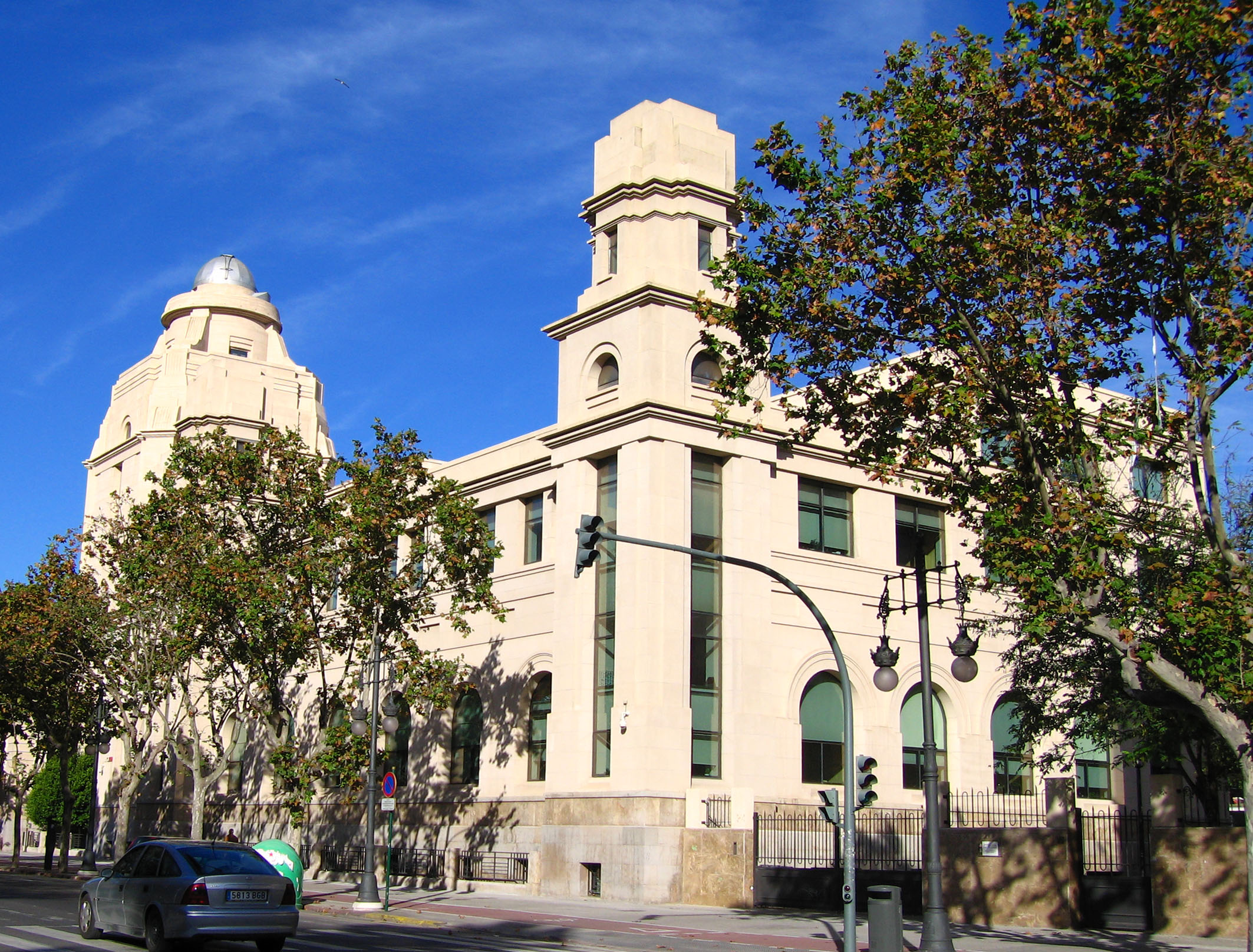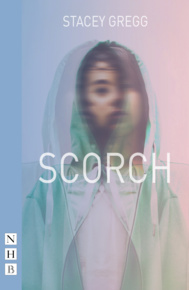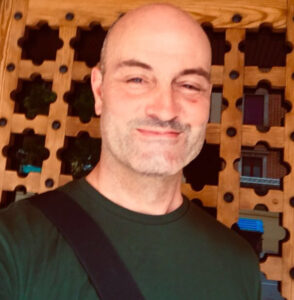Dónall Mac Cathmhaoill, Open University Lecturer in Creative Writing, has been collaborating with University of València colleagues who share his interest in contemporary Irish theatre. Together, they have been exploring the relationship between performativity, truth, and documentary sources.
Here, Dónall offers us a glimpse into this relationship, and tells us how these shared research interests have informed his recently published article in Platform: Journal of Theatre and Performing Arts.

The University of València’s Rectorate (This image is in the public domain)
València in spring is generally a relaxing, pleasantly warm place to be. So I was very much looking forward to conducting a couple of seminars with the Departament de Filologia Anglesa during the month of Las Fallas – the Valencian festival to bid adiós to wintry days.
I came out expecting warm Levante breezes and two-hour terrace lunches with academic colleagues. Unfortunately, València has been experiencing some of the coldest, wettest weather ever for this time of year: high winds and incessant rain. (Being Irish, I felt right at home.)
The research trip evolved through my connection with Dra Maria Gaviña Costero, an English literature academic who specialises in the literature of the Irish conflict, particularly drama.
Given my own research into theatres of conflict, we found we had many interests in common. Having contributed some suggestions of writers the department might consider for their new drama module, I was invited last year to speak at their annual conference.
The idea then developed to deliver a research seminar and workshop with the university undergraduates in English, looking at performativity, truth, and documentary sources in Irish theatre.
The plan was to develop this collaboration to create a research paper on the work of Northern Irish playwright Stacey Gregg, who I had recommended for inclusion on the undergraduate drama module. Gregg agreed to take part in the session I would deliver.

Scorch by Stacey Gregg
The design of the research process was simple enough: the students would take part in a drama workshop where the contingent and subjective nature of dramatic truth would be explored. This involved creating dramatic narratives from ostensibly ‘true’ and ‘real’ material: documentary drama by another name.
The credibility of the narratives was predicated on their affective and aesthetic qualities: on the extent of identification between audience and performer, and on the presence of aesthetic signifiers of truthfulness, such as simplicity and directness of presentation, what Elizabeth Burns calls ‘authenticating conventions’ (1972, p.108).
Importantly, though, the narratives would be considered truthful through the rhetorical convention of having them presented by ‘real people’. This is a technique which has been used in northern Irish post-conflict drama, and which has been subject to academic scrutiny (Upton, 2010; Weigelhofer, 2015; De Ornellas & Mac Cathmhaoill, 2021).
Some, notably Carole-Anne Upton (2011), have called into question the assumptions upon which this work is built. The workshop and seminar explored how truth, and indeed identity, in documentary drama are contingent and subjective, performative and in flux.
The follow-up seminar, just completed, saw Gregg joining us online from Belfast for a discussion and Q&A. The undergraduates had by this stage read Gregg’s play Scorch, which is written from documentary sources. Gregg outlined the strategies she used as a creative writer to ensure truthfulness and fidelity to source in a work that is both documentary and fictional.
These methods – including in-depth case research, interviews, consultations with subject specialists, and presentation of work-in-progress – allow her to write plays that do not claim to be ‘the truth’ but that are unquestionably truthful.
The themes of these seminars will provide the material for upcoming research papers. They are also explored in my journal article in Platform: Journal of Theatre and Performing Arts, 15 (2): ‘Boundaries: respecting authenticating limits in the production of a play on trans marginality’.
Dónall Mac Cathmhaoill is a lecturer in Creative Writing at the OU. His PhD examines modes of authorship in theatre for social and political advocacy. His research interests range from authorship in theatre for social change to advocacy theatre in post-conflict societies. As a writer-director he has wide experience working with communities in Ireland, the UK and beyond. He was director of Irish theatre company Tinderbox, a producer and Head of Education at Soho Theatre, and has worked with major theatre companies including Bruised Sky, London; 7:84 Theatre Company, Scotland; Jagriti Theatre in Bengaluru, India; and Irish language company Aisling Ghéar.
Works cited
Burns, E. (1972) Theatricality: a study of convention in the theatre and in social life. London: Longman.
De Ornellas, K. and Mac Cathmhaoill, D. (2021) Addressing the legacy of inter-communal violence through drama: mainstream theatre and community action. In: Glencree Journal, 2021, 163-174.
Gregg, S. (2016) Scorch. London: Nick Hern.
Mac Cathmhaoill, D. (2021) Boundaries: respecting authenticating limits in the production of a play on trans marginality. Platform: Journal of Theatre and Performing Arts, 15 (2), 111-117.
Upton, C.A. (2010) Theatre of Witness: Teya Sepinuck in conversation with Carole-Anne Upton. Performing Ethos, 1 (1), 97-108.
Upton, C.A. (2011) Real people as actors – actors as real people. Studies in Theatre and Performance, 31 (2), 209-222.
Weigelhofer, M. (2015) The function of narrative in public space: witnessing performed storytelling in Northern Ireland. Journal of Arts and Communities, 6 (1), 29-44.

